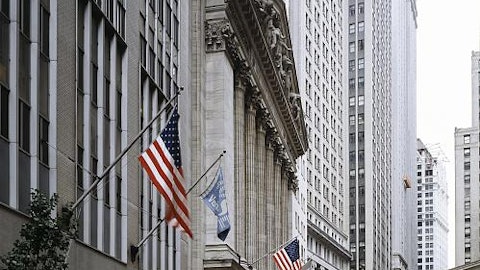The Chicago Board Options Exchange’s Volatility Index, known as the VIX, has been on a steady increase since the beginning of the current week, which might be worrisome for investors and other stock market participants. The increased volatility might have also caused some companies’ insiders to cash out their equity holdings. As a general rule, insider selling activity is perceived as a bearish signal, as this type of activity generally shows that insiders are not expecting noteworthy gains for the stock in the near-time, or they would like hold on to their positions, barring an emergency. However, this line of thinking is not always astute, given the increasing usage of share option grants as employee compensation. As a result, insiders might sell shares simply to collect income and not because of their thoughts on the stock. Nonetheless, heavy insider selling can still be a cause of concern and should be considered as part of the investment decision-making process. To help with that, the Insider Monkey team identified three companies that registered noteworthy insider sales recently, and this article will closely examine these trades.
Prior to discussing the insider trading activity, let’s make you familiar with what Insider Monkey does besides providing high-quality articles. At Insider Monkey, we track hedge funds’ moves in order to identify actionable patterns and profit from them. Our research has shown that hedge funds’ large-cap stock picks historically underperformed the S&P 500 Total Return Index by an average of seven basis points per month between 1999 and 2012. On the other hand, the 15 most popular small-cap stocks among hedge funds outperformed the S&P 500 Index by an average of 95 basis points per month (read more details here). Since the official launch of our small-cap strategy in August 2012, it has performed just as predicted, returning 102% and beating the market by more than 53 percentage points. We believe the data is clear: investors will be better off by focusing on small-cap stocks utilizing hedge fund expertise (while avoiding their high fees at the same time) rather than large-cap stocks.
The insider selling activity at Kroger Co (NYSE:KR) has been very high over the past several days, but we will discuss only the insider sales that were not made in connection with the exercise of stock options. Senior Vice President and Chief Financial Officer J. Michael Schlotman sold 46,857 shares at a weighted average price of $39.77 and offered 10,000 shares as a bona-fide gift on Friday. After these recent moves, the CFO currently holds a stake of 367,991 shares. Executive Vice President and Chief Information Officer Christopher T. Hjelm sold 13,545 shares on the same day, at prices in the range of $40.48-to-$40.55 per share, 1,545 shares of which represent a payment of tax liability associated with restricted stock. Following the aforementioned transactions, the CIO owns 232,459 shares.
The grocery chain has experienced massive growth over the past several years, with its shares having advanced by 27% in 2015 and by 103% over the past two years. Earlier this month, Kroger Co (NYSE:KR) released a strong third-quarter earnings report, which pushed the company’s run of delivering positive same-store sales growth, excluding fuel, to 48 straight quarters. Kroger also raised its net earnings per diluted share guidance for the full 2015 fiscal year to a range of $2.02-to-$2.04 from $1.92-to-$1.98. One could also argue that the stock has more room to run if bearing in mind that its trailing price-to-earnings ratio of 20.50 is still below the 22.71 figure for the S&P 500 Index. Cliff Asness’ AQR Capital Management reported owning 6.71 million shares of Kroger Co (NYSE:KR) through its 13F filing for the September quarter.
Follow Kroger Co (NYSE:KR)
Follow Kroger Co (NYSE:KR)
Receive real-time insider trading and news alerts
The second page of this daily insider trading article reveals the insider sales registered at Sohu.com Inc. (NASDAQ:SOHU) and Raymond James Financial Inc. (NYSE:RJF).





